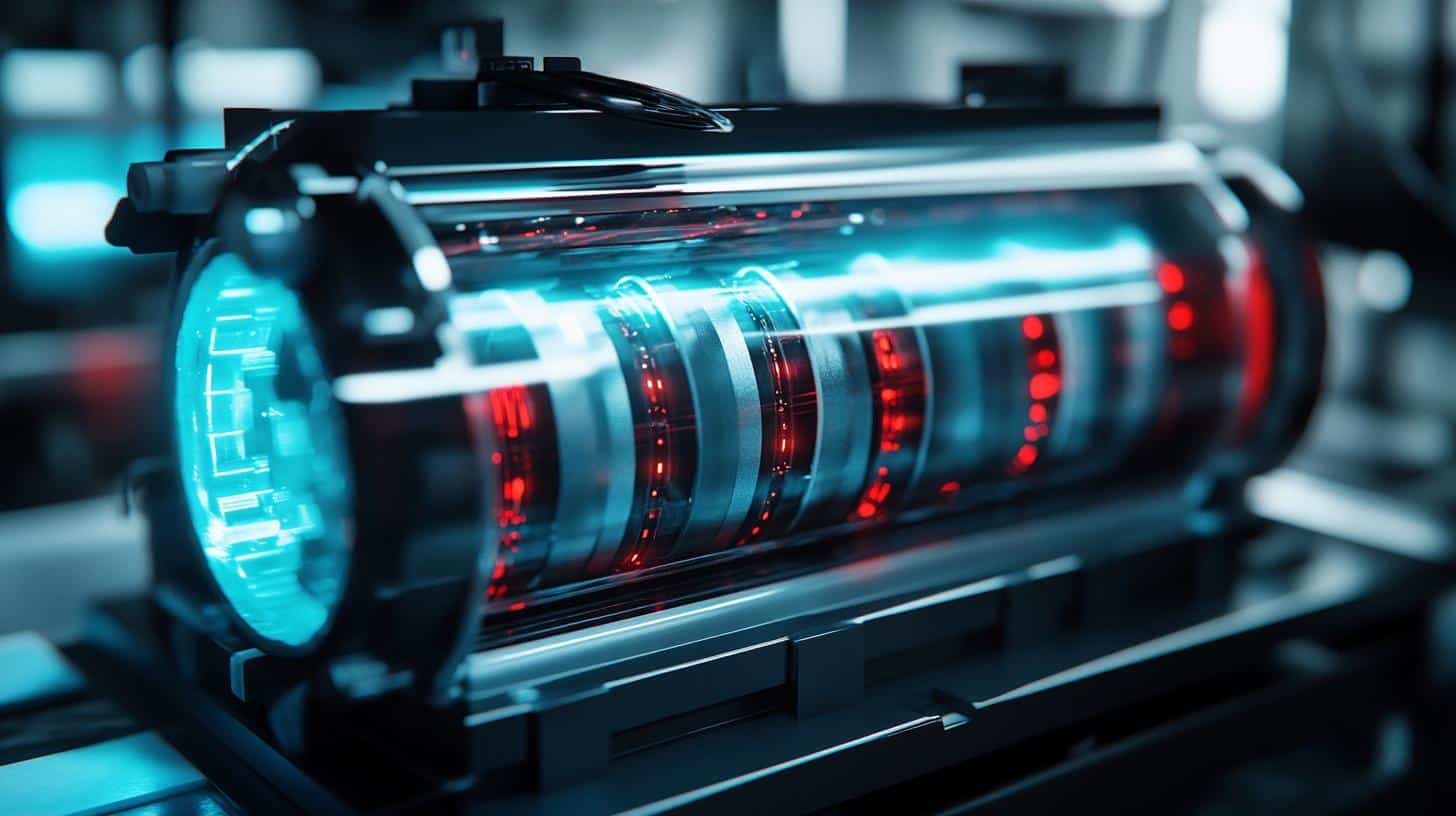MK Plus, an innovative Japanese battery manufacturer, has received a significant financial injection of $50 million to spearhead an ambitious new energy project. The funds will be directed towards establishing their inaugural pilot facility in Japan, specifically designed to develop cutting-edge vanadium solid-state batteries.
An exciting aspect of MK Plus’s venture is the participation of Phenom Resources Corp., which holds a 5% ownership stake, strengthening their investment portfolio with this promising technology.
The advantages of MK Plus’s battery technology are substantial. It outperforms traditional vanadium redox flow batteries (VRFB) with charging speeds that are 100 times faster. Notably, it achieves this while utilizing only one-tenth of the vanadium required by its predecessors. The enhanced battery boasts an impressive +100,000 deep cycle life and eliminates the risk of fire, a longtime industry concern. Furthermore, the technology maintains performance stability across a wide range of temperatures, from 100°C to -40°C.
This breakthrough could mark a significant shift in energy storage solutions, as the demand for efficient and safe battery technologies continues to rise globally. MK Plus aims to revolutionize how energy is stored and accessed, paving the way for more sustainable and reliable power sources.
The project signals a leap forward for the sector, promising not just advancements in speed and safety but also a more resource-efficient approach to battery production. The global impact of these innovations could reshape industries reliant on portable and large-scale power storage solutions.
Revolutionizing Energy Storage: The Untold Potential of Vanadium Solid-State Batteries
The Hidden Economic Impact of Advanced Battery Technologies
In the landscape of technological innovation, the development of vanadium solid-state batteries by MK Plus and its partner, Phenom Resources Corp., represents only a part of a broader narrative. This battery technology promises not only to enhance energy efficiency but also to reshape the economic fortunes of regions dependent on natural resources and manufacturing.
Beyond Energy: Economic and Environmental Intersections
One striking advantage of solid-state batteries is their reduced reliance on raw materials compared to traditional battery technologies. Using only one-tenth of the vanadium required by conventional batteries, these new solutions promise a substantial decrease in the environmental footprint associated with mining activities. For communities affected by extensive mining operations, this reduction could mean less environmental disruption and improved health outcomes over time.
Economically, the implementation of advanced battery technology could lower energy costs for consumers and businesses, especially in regions where electricity prices are high or unstable. This access to more affordable and sustainable energy could drive industrial growth and foster innovation in sectors previously constrained by energy limitations.
Global Competitiveness: A New Frontier for Manufacturing
Countries aiming to lead in next-generation manufacturing might reap the benefits of investing in such transformative technologies. As energy efficiency becomes a key competitive edge, nations could leverage advanced battery solutions to redefine industrial supply chains, making them more resilient and sustainable.
However, this shift towards new battery technologies is not without its challenges. Building the infrastructure required for the widespread adoption of solid-state batteries demands considerable investment and international collaboration. Furthermore, as the technology is still in its pilot stages, questions about long-term scalability and cost benefits are yet to be fully answered.
Questions Arise: Are We Ready for This Shift?
1. Can industries cope with the rapid technological transition?
Industries accustomed to traditional energy storage methods might face initial challenges in integrating these new technologies. Training and development will be essential to ensure a smooth transition and capitalize on the innovative potential.
2. What are the implications for countries reliant on traditional battery production?
Nations heavily invested in conventional battery manufacturing could experience economic disruption as markets shift. However, those that pivot quickly to incorporate solid-state technologies could emerge as leaders in a new era of power storage solutions.
3. How might consumer behavior change with this technology?
More reliable and efficient batteries could lead to increased adoption of renewable energy systems by households and businesses, facilitating a shift toward greener living and reduced carbon footprints.
Advantages and Disadvantages: Balancing Innovation with Reality
While vanadium solid-state batteries offer exceptional performance metrics such as rapid charging and heightened safety, they are not devoid of risks. Production costs remain high, and the integration of these systems on a mass scale could pose significant logistical hurdles.
Nevertheless, the promise of long-lasting, efficient, and environmentally friendly power solutions holds undeniable appeal. The potential to alter the dynamics of global energy consumption and reduce the environmental degradation associated with current battery technologies is an opportunity that industries, policymakers, and communities cannot afford to overlook.
For more information on the emerging trends in energy storage technologies, explore ResearchAndMarkets and Bloomberg.























